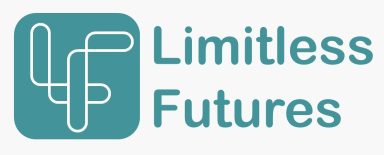
Psychoeducation
We support anxious children and young people, from mainstream, SEND, alternative provision and home ed settings finding it difficult to access education or take part in everyday activities.
Nature Reconnection - (12+ weeks - term time)
The most nurturing of all our programmes based around connection with the environment to reconnect with life. A low demand, child led offering using play and the arts to enhance wellbeing, positive relationships and openess to learning.
Brain - Body connection (12+ weeks - term time)
A fun, hands-on programme that encourages curiosity and develops language to promote interoception expression. This language is used as the foundation to explore the nervous system and to gain an understanding of why we all experience a range of emotions, along with useful tools and techniques for every day life.
Burnt out to burning bright (10-12 weeks - term time)
Burnt Out to Burning Bright offers a safe space to reset the nervous system and is designed for students who feel weighed down by pressure, perfectionism or from people pleasing. With a focus on self-care and self-compassion strategies, it helps young people reconnect with their strengths, set healthy boundaries, and build resilience so they can thrive without losing themselves.
Life Crafting (12+ weeks - term time)
Life Crafting is an interactive coaching programme based on the psychology principle that if you ‘do good’ you ‘feel good’ and is designed to satisfy the human needs of autonomy, relatedness and competence. Focusing on personal strengths and values inspires a sense of motivation and purpose, boosts self-esteem and supports young people to agents for positive change in their community.
Physiotherapy
Based on the M.A.E.S. Therapy approach (Movement, Analysis, Education, Strategies)
Hannah is a physiotherapist who has completed the specialist paediatric M.A.E.S. Therapy course with the renowned Paediatric Physiotherapist Jean-Pierre Maes. She has been practising this hands-on approach over the last 5 years. We are excited to be able to offer this individualised treatment approach to help your child develop quality and varied movement patterns.
The treatment strategies are based on an in-depth analysis of your child's movement disorder. We use this to gain a better understanding of how and why they move the way they do in relation to their brain dysfunction. Traditional therapies tend to focus their intervention on practising the end goal such as crawling, sitting or standing, we focus on the process of movement and all the varied combinations that a typical developing baby learns to do by 'accident' before they are then able to master these milestones.
The more variety of movement someone has the better their quality of movement and potential for further functional gains. We help a child by creating opportunities for them to develop their repertoire of movements by giving them experiences to learn. At the same time reducing their atypical movements from becoming relied upon, which if not addressed can limit their progress. This approach places no limits on their long-term development.
This deep understanding of a child's movements allows us to guide and educate each child, along with their parents/carers, about their specific sensory-motor components to encourage the child's potential for improvement and progress.
